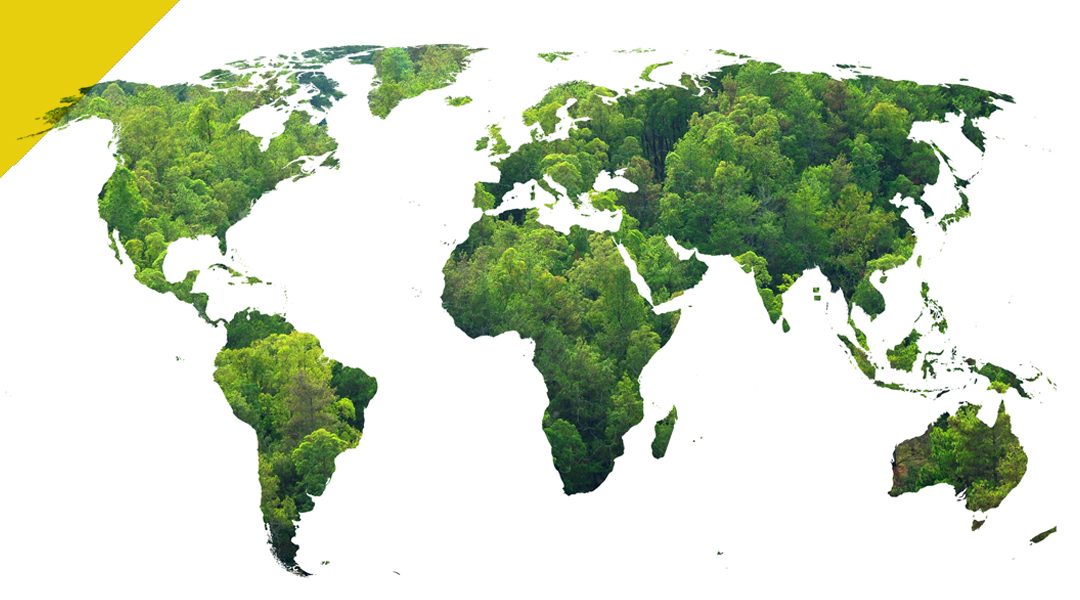Labour and Employment: Green Economy and Green Jobs
The labour and employment experts mobilized by SOCIEUX+ have been actively working on the promotion of green jobs during 2018, supporting economic and political institutions all over the world to tackle the challenges of transitioning to a green economy. Presented here is a reflection on the work undertaken by our experts and partners in civil society and the public and private sectors this year.
In the transition toward environmentally sustainable economies and societies, the world of work is confronted with several important challenges. One of them is the availability of the relatively new skills and abilities that both current and new workers need to enable a low-carbon, resource-efficient, and climate-resilient economy. Our working groups have been frequently focused on the challenges in identifying the labour skills that enable the creation of green jobs and facilitate the transition to a green economy for all working people. There are three contexts in which the skills necessary for green jobs can be understood; each context requires a different set of skills and abilities:
- Economic activities that limit pollution. These refer to all occupations related to the reduction, control, and elimination of all polluting agents.
- Transitional activities toward a green economy. These activities cover the adoption of green business practices to reduce emissions and conserve natural resources. They occur in all sectors of the economy, and in both urban and rural areas. The greening of companies and existing occupational activities does not necessarily imply the creation of new occupations, but rather the transformation of existing ones through the acquisition of additional skills.
- New green occupations and jobs. In certain sectors, innovation and investment leads to the creation of new green jobs, which has been demonstrated in the areas of renewable energy, green construction, the circular economy and related recycling efforts, ecotourism, etc.
In all three contexts, technological innovation is driving the proliferation of new business models, new products and services, and new consumption patterns. Government policies in response to climate change and investments in new green economic activities have triggered the emergence and diffusion of these new technologies, which require specific competencies and skills; hence the need for new curriculums and programs that develop these skills and promote the creation of new jobs and greener businesses. In this context, several questions have to be addressed, such as:
- What are the changes in existing occupations, in both quantitative and qualitative terms? How can existing competencies be adapted to technological innovations and other transformations? Who are the actors of this transition? How can we promote and ensure a social dialogue between employers, workers, and education institutions, to accelerate this transition? It is very important to distinguish existing occupations from new occupations.
- How can we support innovation as well as new technologies, environmental policies and regulations, and changes in citizens’ behaviours, both nationally and internationally?
- What occupations will disappear? What are some solutions for workers in these fields? What are the conversion plans for these workers, and the families and communities that depend on their income? How can our partners finance the shift to new jobs and the revitalization of local economies impacted by this transition?
- How can we best anticipate the skills needed for new green jobs? What are these emerging occupations? What are the current qualification levels and systems in place for certification? What additional trainings and certifications would be relevant?
- On the other hand, do the institutions and agencies in charge of cataloguing occupations and constructing profiles have the capacity to adjust their curriculum to the new requirements? How do they interact with other economic and social entities? Which influences drive curriculum change in academic and technological institutions? How can social dialogue play an instrumental role in these changes?
- Do all segments of the national population – e.g., indigenous communities, youth, women – have the same opportunities to acquire the key competencies for these emerging occupations? Can they access training programmes equally? Is there a need to design specific programmes adjusted to their needs and participation capacity? In countries with large informal labour markets, innovative skills development programmes which build on existing learning systems may need to be developed.
In addition, the process of changing labour competencies is not uniform. There are important regional, national and local discrepancies, which should be identified and used to adjust the plans to geographical and socio-political particularities. Accompanying partner countries to address these challenges is the main goal of SOCIEUX+, and we enjoy mobilizing expertise to work collaboratively on these challenges with them.
Catherine Barme, SOCIEUX+ Employment and Labour Coordinator
Kees van der Ree, Senior Expert in Green Jobs







